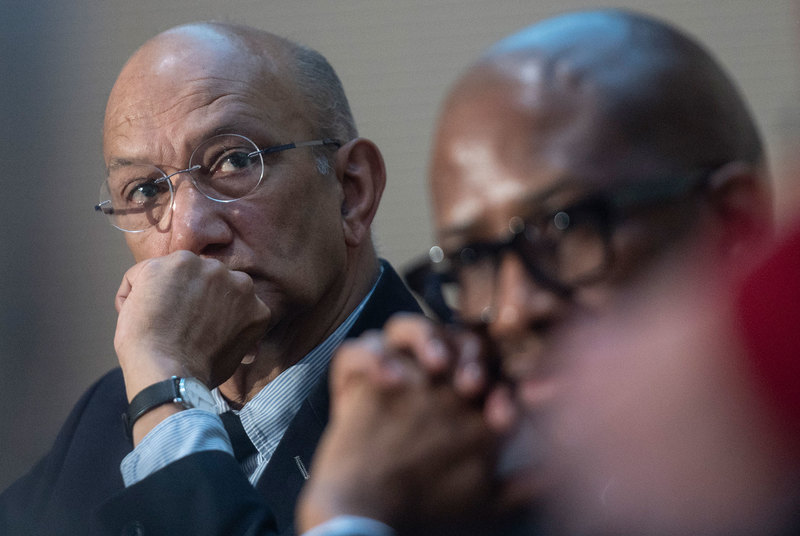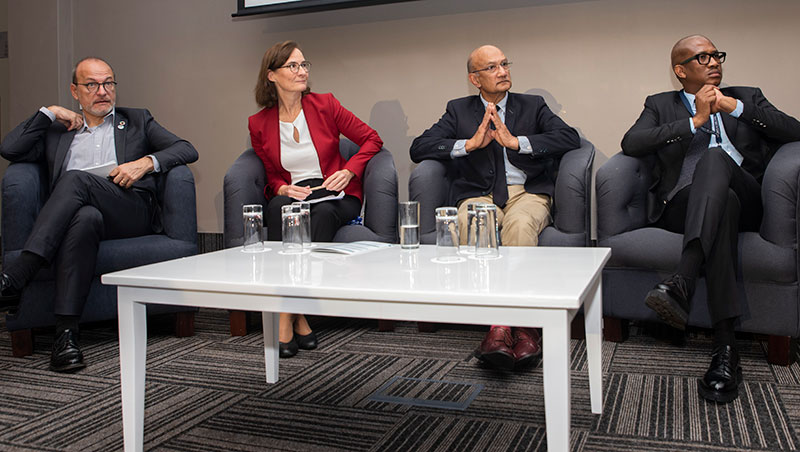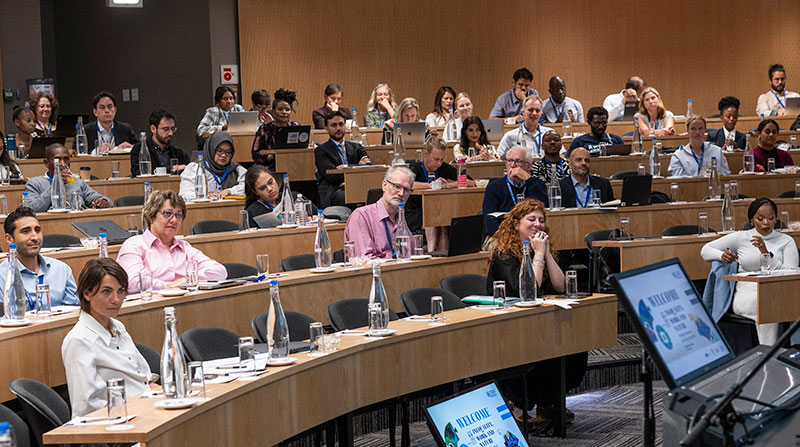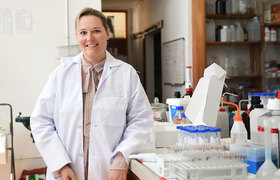Climate change exacerbates inequalities, undermines poverty eradication
14 November 2023 | Story Kamva Somdyala. Photos Brenton Geach. Read time 5 min.
A recent strategic and policy resolution conference, hosted in conjunction with the University of Cape Town (UCT), unpacked inequality, work and nature as climate change continues to impact the world.
The French Development Agency (AFD), the European Union, the African Centre of Excellence for Inequality Research and the South African Presidency came together with stakeholders and partners over two days from 8 to 9 November at the UCT Graduate School of Business (UCT GSB).
“If insufficient action is taken to limit and adapt to climate change, the environmental impact of climate change will exacerbate inequalities and undermine progress in eradicating poverty. There is an inextricable link between inequality and climate change: it is always the most vulnerable who pay the highest price for climate disaster. Responding to the climate emergency requires profound changes in economies and labour markets if we are to achieve the goal of a net-zero emissions society,” read the conference’s agenda-setting circular.

Addressing attendees, Vice-Chancellor interim Emeritus Professor Daya Reddy said: “We see how inequalities accumulate over time and how these are exacerbated by the galloping momentum of chronic diseases in Africa, on top of our infectious diseases such as TB and HIV. Crises such as climate change and the attribution of extreme weather events to climate change and existential crises such as COVID-19 affect those with the least resources and he the poorest.”
To this end, UCT, as a research-intensive institution, will continue to seek solutions.
“Our strategic vision, which entails transformation, excellence and sustainability, aligns well as we build a cohesive and inclusive university community, ensuring a sense of belonging and opening opportunities in a context and with strategies that are aimed and environmental and financial sustainability,” Emeritus Professor Reddy said.
“Cooperation must also straddle discipline boundaries from social sciences to natural sciences to engineering and multiple sectors.”
“To … tackle these issues of inequality, work and sustainability successfully, it will require the pooling of top research, and to do so in a collaborative way: collaboration that involves scholarship [and] not just at a research level; scholarship with policy makers and the broader society. Cooperation must also straddle discipline boundaries from social sciences to natural sciences to engineering and multiple sectors.”
Impact of climate change
On behalf of government, Deputy Minister in the Presidency Kenneth Morolong explained that there exists a real threat to the environment which will impact future generations.
“Our actions of the moment affect the rest of the world and the future generations whose inheritance we could be destroying. Global economic disparities continue to grow, casting shadows on the promise of shared prosperity. The environment, which is the main foundation of our existence, is under increasing threat from climate threat and environmental degradation,” said Morolong.

Several events have occurred in South Africa which speak to his point: Cape Town’s 2018 drought and the unprecedented levels of storms and flooding that have ripped through the Eastern Cape and KwaZulu-Natal in recent years.
“We are still reeling from the trauma and economic shocks brought about by this devastation on our socio-economic infrastructure. Climate change is also impacting agriculture in South Africa, affecting food security. Changes in rainfall patterns and temperature increases are likely to impact crop gains and the availability of water for irrigation. South Africa’s coastal areas are at risk due to rising sea levels caused by the melting of polar ice caps.”
Sustainable Development Goals
The European Commission (EU) director for Human Development, Erica Gerretsen, focused her presentation on the United Nations’ (UN) Sustainable Development Goals (SDGs). These relate to “a universal call to action to end poverty, protect the planet, and ensure that by 2030 all people enjoy peace and prosperity”.
“We need to maintain the strong multilateral engagement around the SDG agenda. Our commitment as EU to fighting inequality is not only for our partnerships outside of the union, but it is a big part of the EU’s own internal agenda,” said Gerretsen.
“Issues of inequality cut through all sectors of society and continents.”
Director-general at the AFD, Rémy Rioux, said: “It’s important to have researchers and policy makers in a gathering, keeping the flame alive and providing the science and research to guide policy as part of an ongoing discussion about SDGs.
“It’s important for governments and universities to take part in these conversations in an understanding that issues of inequality cut through all sectors of society and continents and that solutions are happening everywhere.”
 This work is licensed under a Creative Commons Attribution-NoDerivatives 4.0 International License.
This work is licensed under a Creative Commons Attribution-NoDerivatives 4.0 International License.
Please view the republishing articles page for more information.










